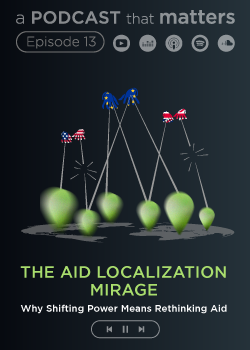Print

Three Research Infrastructures together: Carbon Uptake Southern Ocean: TRICUSO
Details
Locations:Belgium, Finland, France, Germany, Norway, Poland, Switzerland, UK
Start Date:Jan 1, 2025
End Date:Dec 31, 2028
Contract value: EUR 9,999,300
Sectors: Research, Science & Innovation
Description
Programme(s):
HORIZON.1.3 - Research infrastructures
HORIZON.1.3.3 - The innovation potential of European Research Infrastructures and activities for Innovation and Training
Grant agreement ID: 101188028
Topic(s): HORIZON-INFRA-2024-TECH-01-01 - R&D for the next generation of scientific instrumentation, tools, methods, solutions for RI upgrade
Call for proposal: HORIZON-INFRA-2024-TECH-01
Funding Scheme: HORIZON-RIA - HORIZON Research and Innovation Actions
Objective:
The ocean is key in the global C cycle, taking up ca. 25% of the CO2 we emit, slowing climate change and giving us more time to mitigate and adapt to climate change. The Ocean C Value Chain (VC) of observations, data QC & analysis delivers key information around this to decision makers such as the Conference of the Parties. The RIs play a pivotal role in the VC via their ability to operate at scale & pool resources to ensure common data standards and operational practices. The urgency of the climate crisis drives us to put this VC on a much more robust footing with the World Meteorological Organisation leading the planning of a Global Greenhouse Gas Watch (G3W) covering all components of the Earth System. Unfortunately the VC currently delivers estimates of Ocean C uptake much larger than those from models, leading to a damaged ability to manage climate change. However further work suggests that observations at a much higher density in the Southern Ocean (SO) would substantially resolve this issue. Our ability to deliver these via ships is limited by the small number that enter the SO and we therefore need many more observations from research vessels, citizen science platforms, autonomous robotic floats & surface platforms. This step change requires substantial technological innovation and complex data synthesis. TRICUSO will address these needs by a) improving the sensing technologies on floats and small uncrewed surface vessels, b) supporting citizen science on yachts and potentially cruise and expedition vessels, c) integrating biological observations into the work flow, d) improving data flows to scientists, e) evaluating the density of observations needed & f) proposing fit for purpose governance structures that allow the RIs to operate within the G3W. These actions will enable us to have a much firmer grip of how and why Ocean Carbon uptake varies and thus a much firmer evidence base on which to make decisions around managing climate change impacts.

